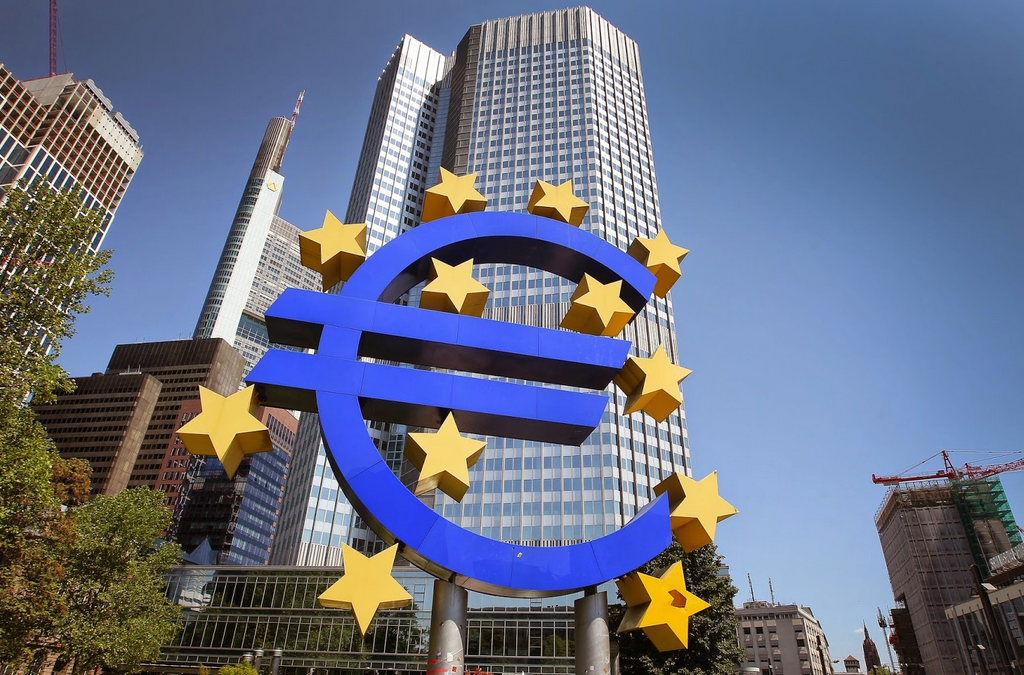A review of the ECB meeting from out friends at Livesquawk
- ECB reduces QE to EUR 30 billion per month from Jan-Sep 2018
- ECB Holds Interest Rates
- ECB Plans to continue reinvestment of maturing assets beyond net bond purchases
The European Central Bank plans reduce its monthly bond buying programme from its current level of EUR 60 billion to EUR 30 billion in January and extend the purchases to at least September of next year.
Just minutes before the announcement of the plans, a slight tremor shook the bank’s Frankfurt headquarters, symbolic for the minor impact on the markets. The addendum to the current plan was widely expected, with the euro dipping on the news.
The ECB left open the door for indefinite bond buys with profits from those it purchases. The bank said:
“The Eurosystem will reinvest the principal payments from maturing securities purchased under the APP for an extended period of time after the end of its net asset purchases, and in any case for as long as necessary.”
ECB President Mario Draghi said the programme’s lack of a termination date served as a wedge issue in the governing council, so support was not unanimous.
“A large majority of the council members preferred to keep it open ended,” Draghi said. “By and large, there wasn’t much disagreement.”
It seems the asset purchases will end with a whimper instead of a bang, according to Draghi, who said,
“Certainly it is not going to stop suddenly.”
The bank stood pat on interest rates and its wording for their future by repeating the phrase “well past”: “The governing council continues to expect the key ECB interest rates to remain at their present levels for an extended period of time, and well past the horizon of the net asset purchases.” Most market observers expect the next rate move, a hike, to occur in early 2019.
When pressed on a possible change in the order of monetary policy shifts, say a rate move before the end of asset purchases, Draghi said: “The sequence stays what it is.”
Who Let The Doves Out
Normally reducing the purchases of assets and plotting their demise would be hawk bait, but not this time.
“It is a very dovish tapering,” according to Carsten Brzeski, chief economist for Germany and Austria at ING-Diba in Frankfurt. “In short, today’s decision is a sea change but a very gentle one; not a big-bang U-turn in ECB monetary policy. In fact, the QE recalibration the ECB has announced illustrates that the ECB wants to start the exit as cautiously as possible, ideally without seeing the euro appreciate or bond yields increase.”
Jordan Hiscott, chief trader at ayondo markets, said:
“With growth in Europe now back on track, and with other major central banks looking to raise interest rates, the timing seems perfect. However, the ongoing issue of low inflation in the Eurozone will likely mean monetary stimulus is reduced, but the program has been extended to encompass this issue.”
Draghi touched on inflation, saying he expects it to decline later this year. Additionally, he noted that price developments in the eurozone are behind those in other regions where the rate compass points up, which “justifies” a different policy.
The bank refused to discuss what bonds it will buy with its asset programme and its reinvestment of profits from maturing securities. Draghi did note: “We will continue purchasing ample quantities of corporate bonds.”
The ECB also said it plans to publish the expected monthly redemption amounts for its asset purchases over a rolling 12-month horizon.
Eric Culp – LiveSquawk News, Frankfurt
For a free trial of Livesquawk’s services, click here and use promo code forexlive
After the presser, the ECB released a statement on the further evolution of their Asset Purchase Programme (APP)
One of the main factors the market has jumped on, is the re-investment of prior purchases. Some are saying that that will add anywhere from 10-15bn on to the monthly QE bill and thus the cut to 30bn isn’t as big as it seems, when you add the re-investments. It’s a strange assumption as it’s no different to the Fed’s, nor BOE’s re-investment programs. But, if that’s the market’s thinking and it is they who move the prices, who are we to argue? As the old saying goes, markets can remain irrational far longer than we can remain solvent.
- The last NFP competition of 2022 - December 1, 2022
- Will this month’s US NFP be a horror show? - October 4, 2022
- US NFP competition – Do you think there’s going to be a turn in the US jobs market? - August 31, 2022

